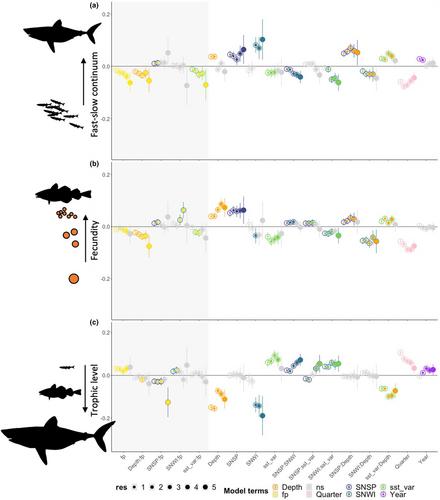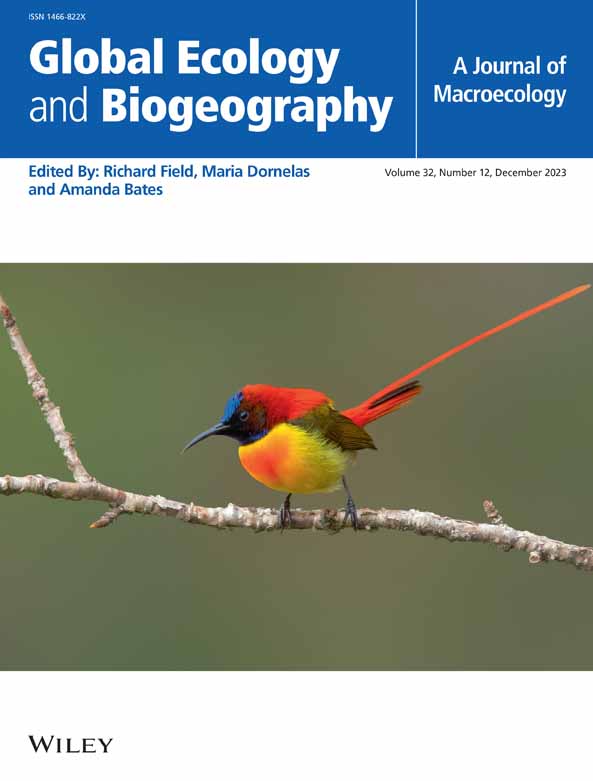Human pressure in the oceans is pervasive and affects marine life. Understanding species' differing responses to human pressure, and how human pressure compares to other environmental variables in shaping marine communities is needed to facilitate the sustainable management of the seas. Despite theory and empirical evidence that fishing pressure affects marine life-history strategies, several recent large-scale studies have not shown strong relationships between fishing pressure and community composition. We aim to reconcile theory with data and explain these variable findings, testing the hypothesis that the signal of the effect of fishing pressure on marine communities depends on the scale at which the community is defined.
North East Atlantic.
2009 to 2021.
Marine vertebrates (Teleostei, Elasmobranchii, Petromyzonti, Holocephali).
We collate extensive scientific marine biodiversity surveys, published life-history traits and high-resolution annual fishing pressure data. Using frequentist Generalized Linear Mixed Models, we assess whether community mean weighted life-history traits correlate with fishing pressure, sea surface temperature and depth and whether the strength of these relationships are scale dependant.
We show fish community life-history strategy correlates with fishing pressure, and the relative importance of fishing pressure compared to environmental variables increases with the scale at which a community is defined.
We suggest this scale dependence relates to the spatial extent over which covariates vary, and how fish movement moderates communities' experience of this variability. Our findings highlight the importance of explicit consideration of scale in ecological research, supporting the idea that studying systems at ecologically relevant scales is necessary to detect and appropriately interpret the effects of global change.



